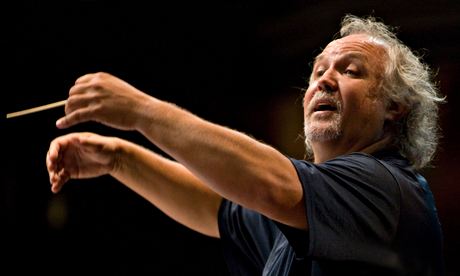
Mahler's Ninth Symphony lasts about 90 minutes, give or take. On paper that might look lightweight alone on a concert programme, but this towering score needs no side dish or starter; with all its torment and transcendence it is more than enough. Still, the BBC Scottish Symphony Orchestra's chief conductor, Donald Runnicles, has a thing for pairings. Last season he coupled each act of Tristan und Isolde with works somehow linked to Wagner's opera, and here he preceded the Ninth with Arvo Pärt's Cantus in Memoriam Benjamin Britten. It was an admirably unsentimental reading of this ardent elegy, culminating in a gloriously warm warble from the strings. The problem was that the Cantus wends its own consuming emotional journey; as its blazing climax segued into the tentative, trembling opening of Mahler's symphony (Runnicles had requested no clapping between pieces), I was already semi-sapped.
As for the symphony itself? This was a forthright, noble performance, powerful for the same stark straightforwardness that characterised Runnicles's reading of the Pärt. There was no wallowing, no easing of the thwarted climaxes, no filter to Mahler's stream of consciousness. Runnicles drew out the ugly, the awkward and the insecure as well as the sumptuous. Only an orchestra as bold and responsive as the BBCSSO – and one with such commitment to its chief conductor – could have so deftly navigated this fitful journey.
The first movement's squalls came thick and fast. The country dances were determined, not vulgar, and the Rondo-Burleske grew with unstoppable propulsion, hurling up grim visions with brusque inevitability. Like magical realism, the impact was more striking than any over-dramatisation – less ghoulish, more menacing. The finale was peaceful, almost simple. This wasn't so much Mahler looking questioningly into uncertainty (as Adorno once termed it) as arriving at dignified closure.

